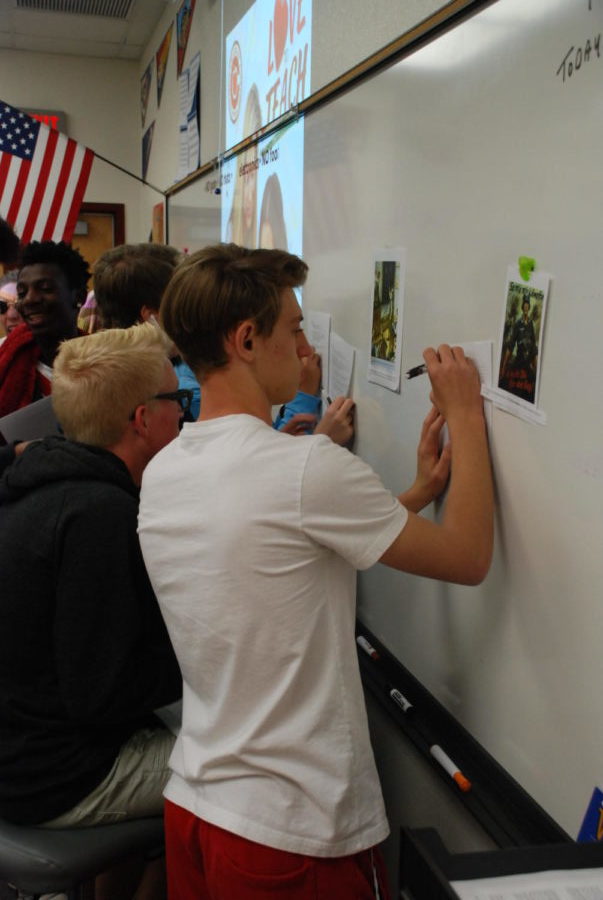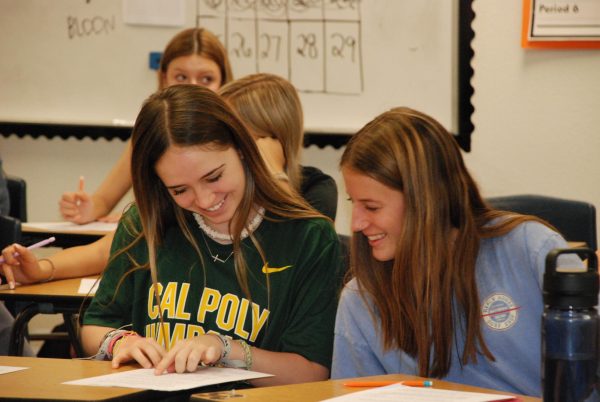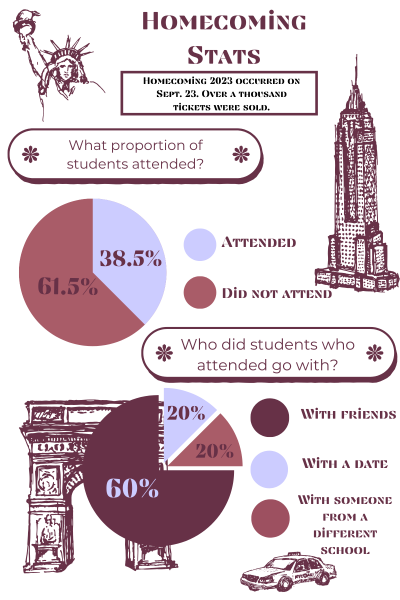English department uses Holocaust literature to teach tolerance
Literature is the key to learning different aspects of life, including the past. Sophomores in regular English classes were tasked with reading one of the works of Markus Zusak, The Book Thief. The novel takes place in Germany during World War II, telling the story of a young girl named Liesel Meminger.
The book teaches students about the Holocaust, making them see the events that occurred during that time. It also held significant lessons for those who read it to learn from.
Sophomore Solace Zobel notes that, “The Book Thief has taught me that no matter what a person is born, it is the things they are taught that will truly shape who they are.”
Liesel was raised by Hans and Rosa Hubermann, their influence taught her to stand up for the Jewish people and defy the hateful society that surrounded her at that time.
In this day and age, it is still important that the past is studied and taken into account, never forgetting what took place and shaped certain aspects of the world.
English and yearbook teacher, Erika Stueber states, “We never want to forget what happened in order to learn from our past, we need to educate ourselves,” she continued, “this book does a really good job of dealing the perspective of a child who lived through the Holocaust and some of the things that did happen during that time.”
The book itself not only contains a strong source of information, it uses words and phrases that highlight the emotions of the scenes and describe them, allowing the students to picture the situation.
English teacher Penny Snyder agreed, “In The Book Thief that’s what the author does, beautiful similes and imagery and personification and metaphors,” she paused, “sometimes I think it gets lost, kids are like ‘oh this is a book we have to read’ and so they don’t understand.”
Due to the fact it is a part of the curriculum, students immediately disengage, the level of interest lowering at the fact it was a requirement to read the book. This disregard stops young minds from learning more about the past, which immerses students in the book. The impact of the event itself is slowly being taken more lightly.
“I think before we thought it was good enough to read the novels about it, and now that’s not good enough,” Snyder stated.
The words written on the pages of The Book Thief is simply a sliver of the history. Many only look at the pages but never attempt to see beyond it, only seeing the words that runs through the paper, yet never seeing the tale that is extending out to them.
Stueber noted that, “What sometimes kids forget about it is that we’re talking about real people, this isn’t fiction.”

Nadine Loureiro is a senior at Perry High School and is in her third year of newspaper. Her beat this year is food critic, which she is looking forward...

Sydney Wolfe is a senior staff reporter and editor. Being the Co-News Editor, ECON/DECA/Business reporter, and a feature writing, writing is a passion...

Damien Tippett is in his 11th year as adviser to the Precedent student newspaper. In addition to the newspaper, Tippett also teaches sophomore English...






